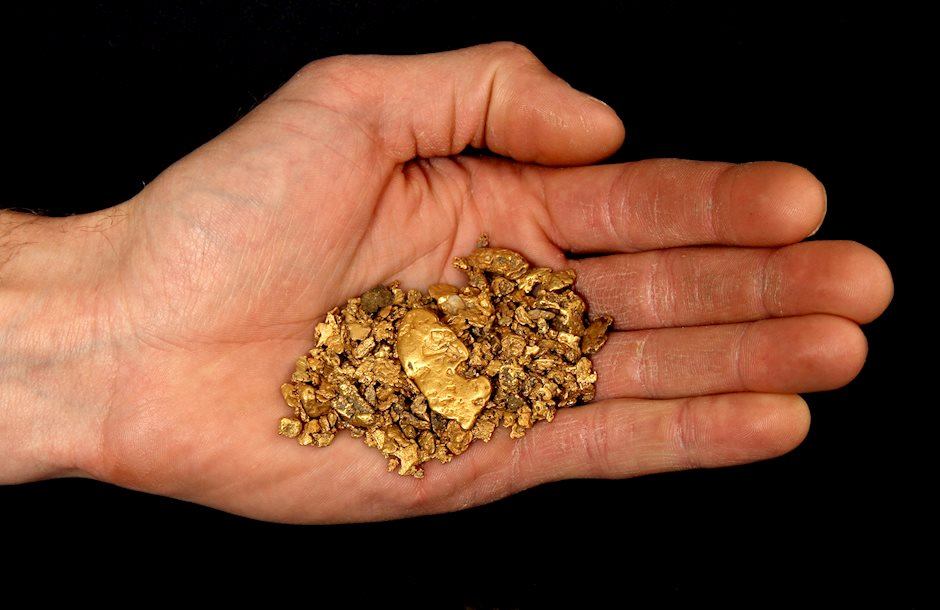The US is ready with a Gold revaluation mechanism too

In an interview this week with Mark Moss of Market Disruptors that is posted at YouTube, Luke Gromen of the Forest for the Trees financial letter notes something about the U.S. Treasury Department and Federal Reserve that has also been contemplated by other governments and central banks.
The U.S. Treasury Department maintains what is essentially its own gold revaluation account at the Fed, in which U.S. gold reserves could be revalued to create any amount of U.S. dollars for the Treasury to draw upon.
The U.S. gold revaluation account is called the Gold Certificate Account and is described on Page 12 of the April edition of the Fed's Financial Accounting Manual for Federal Reserve Banks.
The manual says:
"The Secretary of the Treasury is authorized to issue gold certificates to the Reserve Banks to monetize gold held by the U.S. Department of the Treasury. At any time, Treasury may reacquire the gold certificates by demonetizing the gold.
"Treasury maintains an account with the [Federal Reserve's] Board of Governors entitled 'Gold Certificate Fund / Board of Governors of the FR System.' When the Treasury monetizes gold, it credits this account in return for deposit credit at the Federal Reserve Bank of New York (FRBNY). When demonetizing gold, Treasury decreases the account and authorizes the FRBNY to charge its deposit account.
"The offsetting entry in each case on FRBNY's books is made to the Gold Certificate Account and the U.S. Treasury General Account. The FRBNY accounting staff sends an advice of these entries to the [Federal Reserve] Board [of Governors].
"Also, whenever the official price of gold is changed, Treasury adjusts the account and, simultaneously, the deposit account."
Revaluation of government gold reserves to create money isn't a new mechanism. It's a mechanism whose last exercise in the United States is so old that few people are aware of it -- President Franklin D. Roosevelt's revaluation of gold from $20.67 per ounce to $35 per ounce in 1934, an event whose facilitating money creation was well described a few months ago by Money Metals News Service writer Mike Maharrey.
Revaluation of the U.S. gold reserve to facilitate money creation was mentioned, rather remarkably, by a former member of the Fed's Board of Governors, Lyle Gramley, during an interview with Business News Network in Canada in December 2008.
It was also examined at length by the U.S. economists Paul Brodsky and Lee Quaintance in 2012.
In his discussion this week with Market Disruptors' Moss, Gromen remarks that a substantial official U.S. revaluation of gold -- say, to $20,000 per ounce or more -- might enable the creation of trillions of dollars for the U.S. government to use to repay enough of its debt to make the country's ratio of debt to gross national product appear more plausible and sustainable.
Moss responds that such a revaluation likely would generate huge inflation, but Gromen says that only huge inflation can diminish the debt problem and that other countries have survived and adjusted to such periods.
Of course in the end gold revaluation, like the recent proposal for the Treasury to mint platinum coins with trillion-dollar denominations and turn them into cash at the Fed, is just legerdemain, accounting trickery to rationalize creation of money far out of proportion to national economic production.
But that governments and central banks are so prepared for gold revaluation may be a reminder that the metal remains not just money but also the secret knowledge of the financial universe -- and that the nuttiest gold bugs of all are central bankers and the elected officials whose bidding they do, creating a world financial system so crazy that only gold may be able to save it.
To receive free commentary and analysis on the gold and silver markets, click here to be added to the Money Metals news service.
Author

Chris Powell
Money Metals Exchange
Chris Powell is a political columnist and former managing editor at the Journal Inquirer, a daily newspaper in Manchester, Connecticut, USA, where he has worked since graduating from high school in 1967.

















